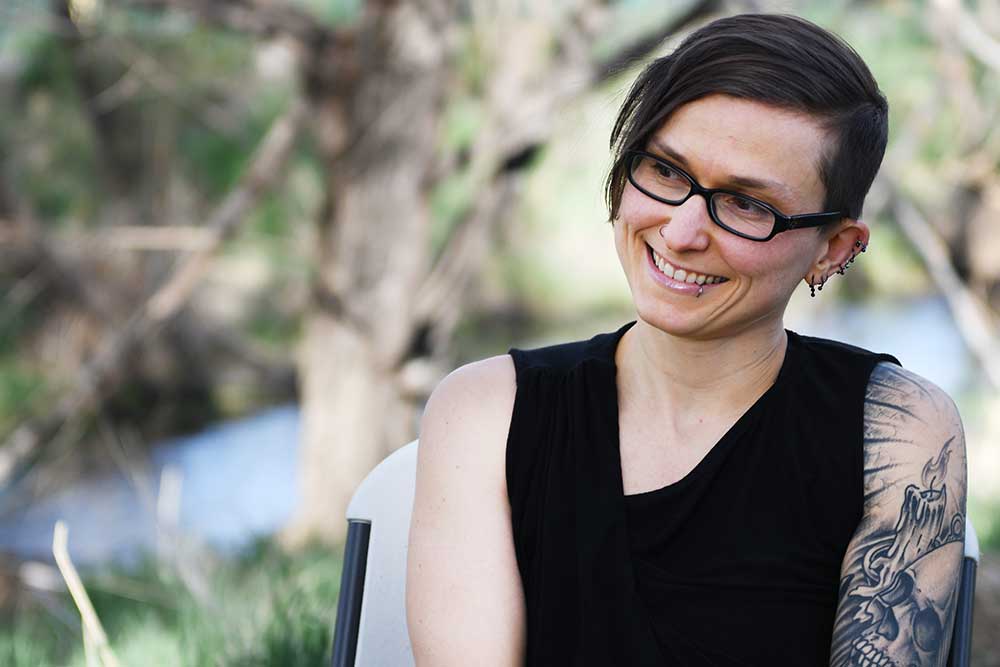
Photo by Stephanie Blakeman.
Keri Blakinger is a staff writer at The Marshall Project, where she focuses on prisons and jails, and writes the “Inside Out” column. Before moderating a Zócalo/California Wellness Foundation panel titled “What Would the End of Mass Incarceration Mean for Prison Towns?”—convened in Susanville, the site of one of California’s projected prison closures—she sat down in our traveling green room to tell us about her new memoir, her favorite figure skaters, and what she thinks about the prison system.
You were a figure skater. Who’s one of your favorite skaters?
I really liked Sasha Cohen. I think her skating was just so beautiful. Out of the current skaters, I really like Mariah Bell. But I don’t actually follow it—I just have so many friends who are still involved that when the Olympics or Nationals come around, it is all over my feeds, so I just absorb it through the social media ether.
What is your favorite place to go in all of Texas?
There’s a running trail I really like in Austin.
What does your next week look like?
I’m going to a death penalty conference. All of the lawyers that deal with it will be there. A lot of them I haven’t seen since pre-COVID. It’s a very niche community of people that do a thing that a lot of other people don’t understand or don’t fully appreciate. People don’t think about the trauma lawyers deal with when their clients [are] executed again and again and again. You spend 20 years on a case, and the person gets killed. Similarly, for me as a reporter spending a lot of time with these guys—I realized last year I’d been to death row more than any other location, other than maybe CVS. There’s no other realm where you know all your sources are going to get killed. These lawyers are also moving through that world; it’s nice to connect with people who understand the nature of our very parallel jobs.
Your new memoir Corrections in Ink is out now. What inspired the title?
I kept joking that it sounds like a tattoo memoir, so I’d have to spend all the money on tattoos. This [points to a tattoo] I got from book money. I’ve been trying to crowdfund copies for prisoners—this is one demographic that really wants to read this. They want to see people who have been where they are getting out and be successful. And being thoughtful about it. And trying to continue using their past to do something positive. Some prisons will routinely ban books that don’t reflect well on prisons.
What was your favorite part about writing it?
Finishing it. I wrote a dark personal memoir during a pandemic. Zero out of 10—do not recommend. There are some really dark parts of that I was writing in 2020 into 2021; I only finished just after I got vaccinated. I remember wanting to be done so I could finally go out into the world. I wrote about being a homeless teenager, doing sex work on the streets, a very earnest suicide attempt, years of drug addiction, years in prison and solitary confinement. It was really heavy. I don’t think I appreciated how far I’d come until I read back through the whole thing. Then I was like, wow. That ending really hits.
What’s the best advice you’ve received?
Clearly I didn’t listen to any of it because I ended up in prison!
What is one thing you’d like readers to know about prisons?
The average conditions and treatment in prisons are a lot worse and counterproductive than a lot of people appreciate. If prisons make people worse, then they don’t end up helping public safety but harming it. Sure, that’s not the only purpose of prisons, but in their current state they can leave broken people a lot more broken.



